
Viewpoints | Mar 28,2020
On a hot, sunny morning last week, three saleswomen inside a narrow container in Addis Abeba's Aqaqi-Qality District were in a rush to serve a long queue formed outside.
The stuffy metal container had been converted into a consumer-cooperative outlet that sells household commodities at discounted prices. On offer that day was sugar. Buyers had been lined up outside, standing for a while - some of them for hours.
As their patience grew thin, a few resorted to attempts to sneak to the front while others tried to force their way through the queue. The commotion was nothing new to the sales associates - it had become an everyday scene over the past few months.
Sa'ada Imam, 28, was among those in the line. She was desperate to get her hands on sugar, an essential component of her business selling tea and coffee in a makeshift stall nearby.
She rents her spot under the awning of a busy corner housing a kiosk selling khat. The location on the side of the main road connecting Qality with the Adama Expressway is less than ideal, as stalled construction prompted the cars to pass by, leaving behind a trail of dust. Nonetheless, Sa'ada depends on her small business to make it through.
"I've been here for over an hour," she said, eyeing the half a dozen people ahead of her.
Sa'ada sells a cup of coffee for 10 Br. A kilo of sugar at the cooperative outlet goes for more than 42 Br. Retailers elsewhere charge triple. Even if she could afford it, a volatile market meant she would have no way of knowing what prices were on a given day. Her other expenses include 400 Br for a kilo of coffee beans. She also pays no small amount for the coal she uses to brew her coffee. At Sa'ada's place, 20 cups in daily sales bring 50 Br in profit margins.
It is no longer the case. Her desperate circumstance is reflected in her expression.
"I can't increase my prices," she told Fortune. "I might lose my customers."
She lives in a single room, paying 1,500 Br in rent, which she can no longer cover without support from her family. It is a discouraging situation, for, Sa'ada had begun her small business hoping to become financially self-dependent.
Outdated data takes part of the blame for the long queue for sugar.
A door-to-door survey conducted six years ago by officials in the wereda where Sa'ada has lined up puts the number of residents in the area at 18,500. This led wereda officials to determine demand at 1,100qtl of sugar a month. Each household included in the survey is allocated three kilos of sugar a month regardless of the number of residents. Families with five or more people are allowed five kilos.
Birtukan Gize, team leader for the wereda's trade transaction department, concedes the quota no longer reflects the actual demand. To make matters worse, the quota was eventually lowered to 780qtl. Even then, the wereda has not received the full amount for the last eight months. Supply shortages have cut supply by half.
"It's getting worse," said Birtukan.
Domestic sugar production remains trailing far behind demand. State-owned sugar estates report that a lack of inputs, machinery breakdowns, and faulty irrigation systems are among the factors behind the low productivity.
The sugar shortage is not limited to the Wereda 07 of this District. Neither is it something unusual to occur.
Underwhelming domestic sugar production has long been an everyday phenomenon, forcing federal authorities to import millions of quintals of the commodity to cover deficits in supplies each year.
The state-owned Ethiopian Sugar Industry Group is the sole supplier of sugar to consumer cooperatives and state-run outlets. The Council of Ministers approved the formation of the Group with 115 billion Br capital earlier this year, transforming it from its former self, the Sugar Corporation. The oldest sugar estates: Wonji, Metehara, and Finchaa and the newly-built Kessem and Tana Beles plants are its founding shareholders. It is also mandated to monitor the progress of ongoing construction on eight state-owned sugar plants.
Other parastatals - the Ethiopian Industrial Input Development Enterprise (EIIDE) and the Ethiopian Trading Businesses Corporation (ETBC) – distribute the sugar plants under the Group's management produce. Last year, it awarded a foreign supplier a contract to import two million quintals of sugar. However, only half of the volume has been shipped due to issues with opening a letter of credit (LC).
"We're trying to distribute the product we have on hand," said Reta Demeke, public relations head.
A month ago, officials at the Ministry of Trade & Regional Integration (MoTRI) instructed the Group's executives to distribute stocks to stabilise the market. The Ministry determines quotas for regional and city administrations.
The Amhara Regional State administration sees a quota of 117,000qtl to be delivered every 45 days. This translates to eight deliveries a year; however, its officials only received two last year, disclosed Tafere Yimer, head of a consumer cooperative, trade, and market development bureau under the regional state.
Things have not improved much since.
The regional administration has taken delivery of one-third of the quota twice thus far this year, in August and September. Tafere's Bureau has contacted distributors to deliver missing quotas from previous months as a reserve for the consumption of the national army, which has a heavy presence in the Regional State due to the civil war raging in the north for close to two years now.
One of the primary distributors is the state Enterprise, which supplies to the Amhara, Oromia, Southern, Afar, and Southwest regional states. It receives 60,000qtl each month on average. As production falls, the volume has fallen to a third of that this month.
"We're preparing to import on our own [sugar]," Solomon Girsha, deputy chief executive officer (CEO), told Fortune. "We're looking for prospective private investors to deal with foreign currency problems."
The forex shortages are also what the Corporation's executives face.
Ketsela Shewarega, the deputy CEO of corporate operations, concedes that supply has fallen to 40pc of the quota.
The public relations head blames a lack of forex for importing machinery, spare parts, chemicals, and fertilisers for the falling production. He disclosed that trouble transporting fuel to sugar factories brought on by instability has also been challenging.
Finchaa Sugar Factory, 350Km northwest of the capital in Oromia Regional State, is the country's oldest sugar estate. It has an annual production capacity of 270,000tns. It did not manage to produce more than a third of its capacity last year. Near the Adama (Nazareth) town, Wonji-Shoa Sugar Factory commenced production in 2013 after the Wonji and Shoa sugar estates were merged through an expansion project. It produced 340,000qtl last year, and close to 600,000qtl the year before. However, both are far too short of its production capacity of one million tonnes a year.
Jemal Aman, general manager of Wonji, attributed the inaccessibility of raw materials to dropping production.
"Farmers delivered only 60pc of cane production," he told Fortune.
A sugarcane growers' union of 7,000 farmers under 17 associations supplies 2.5 million quintals of sugarcane annually. However, the harvest has been dwindling.
Teshome Abera, the union's general manager, disclosed that scarce water supply and a lack of inputs pushed close to 10,000 farmers to cease growing sugarcane in the last couple of years. The number of associations under the union has also fallen by nearly half.
"The factory had agreed to provide pumps, fertiliser, and chemicals to the farmers," Teshome told Fortune. "It's yet to do so."
The factory signs contract with farmers, renewable every three years, overseen by consumer cooperatives in the region and the Sugar Industry Group.
Teshome reveals there are other issues, too. The farmland the government provides is unsuitable for sugarcane production, while machinery inside the factory often breaks down and leaves production lines idle. The hurdles proved too much for thousands of farmers.
Reta Alemu, however, is hanging on.
The father of four is a member of the Awash Melkassa Sugarcane Growers Association that supplies to Wonji. Established in 2011, the Association comprises 164 farmers growing close to 100hct of land. Reta and his fellow members used to provide over 3,000qtl of cane to the factory each year. It has dropped to 700qtl, according to him.
Reta blames aged and dysfunctional irrigation pumps and lines for the fall in production. Sugarcane requires large volumes of water to grow, and irrigation systems must be maintained regularly.
Says Reta: "We requested replacements, but we haven't heard any responses."
The issues have forced Reta to seek a second job in a government office to support his family.
"Sugar cultivation is not worthwhile," he said.
Production shortages are common, and the Group resorts to imports to compensate for supply deficits. It used the state-owned Ethiopian Shipping & Logistics Services Enterprise (ESLSE) for transportation. However, Weyo Roba, CEO of the Group, proposed to his board of directors to begin looking for other alternatives as shipping costs have grown too expensive.
The federal government imported two million quintals of sugar two years ago, spending 375 dollars a tonne and 62 dollars a tonne for transportation.
"We may implore the macroeconomic committee," Weyo told Fortune.
Federal officials have spearheaded reforms at state-owned sugar estates over the past month. New laws allow sugar factories to form their respective board of directors, which they did last month. The boards will be reporting to the Ministry of Trade & Regional Integration.
The authorities hope the new structure will facilitate lagging efforts to privatise sugar plants. Weyo aspires to see private sector involvement speed up unfinished projects, introduce new technologies, and promote value addition.
The Sugar Industry Group, whose board Girma Birru chairs, was among over two dozen state-owned enterprises to come under the Ethiopian Investment Holdings (EIH) this year. The sovereign wealth fund under Mamo Miheretu recently called for an expression of interest from foreign and domestic investors to buy eight state-owned sugar factories.
The sugar estates up for grabs include four in Omo Kuraz, Tana Beles, and Tendaho as the federal government revives its privatisation efforts. The authorities had initially announced plans to privatise eight of the 13 sugar plants in operation or under construction. Last July, Ernst & Young was hired as a transaction advisor after offering 3.3 million dollars.
Not a single estate has been sold to private buyers yet.
Experts like Abinet Belay, an investment consultant, advise that privatising factories is essential to solving supply and production snags. However, he urged the authorities to consider other alternatives.
"Accessing loans from foreign banks is another option," said Abinet.
However, the expert warns officials must ensure the sugar estates can repay the debts before considering this course of action.
Whatever the authorities decide, it will likely be too late for Sa'ada, who does not know how long she can keep up her coffee business.
"I prefer working to being unemployed and dependent on my family," she said.
PUBLISHED ON
Sep 24,2022 [ VOL
23 , NO
1169]

Viewpoints | Mar 28,2020

Films Review | Dec 26,2020

Films Review | Jul 13,2019

Commentaries | Aug 06,2022
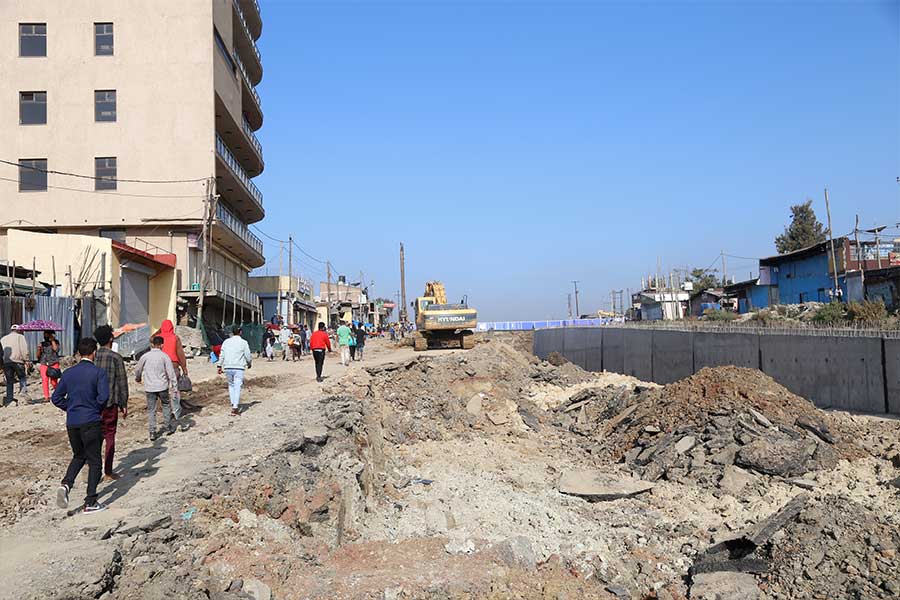
Radar | Oct 24,2020
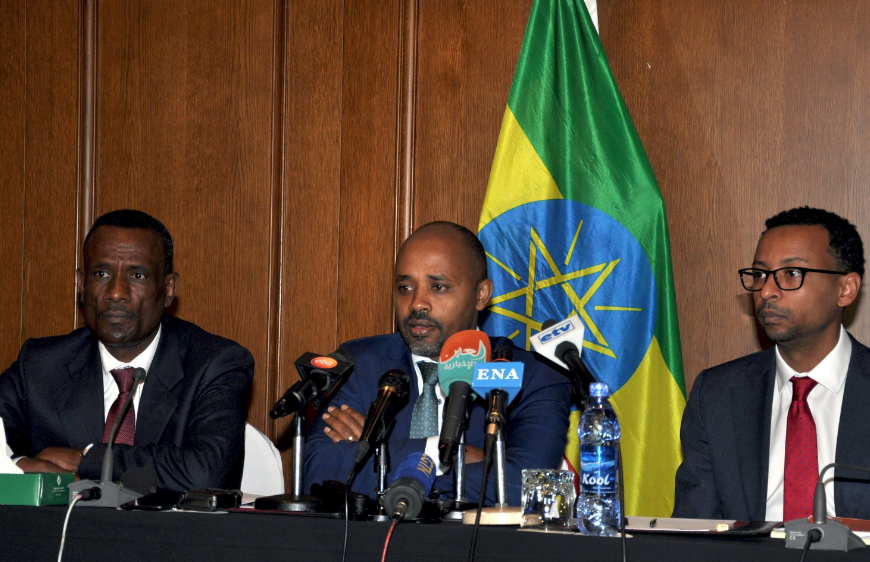
Fortune News | Nov 30,2019
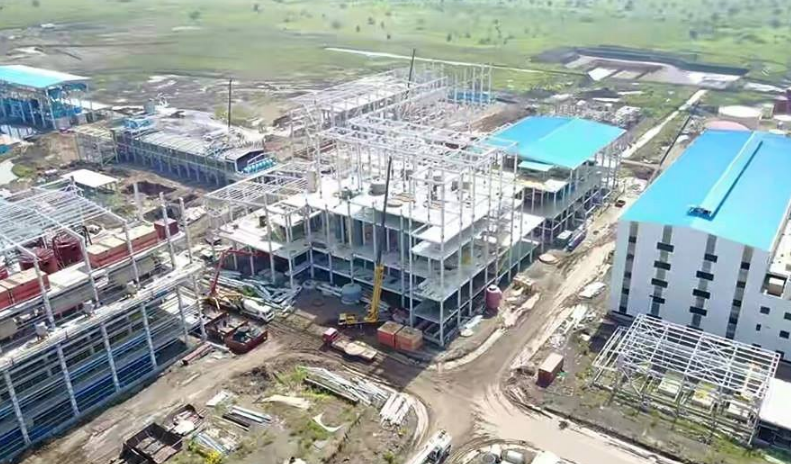
Fortune News | Apr 04,2020
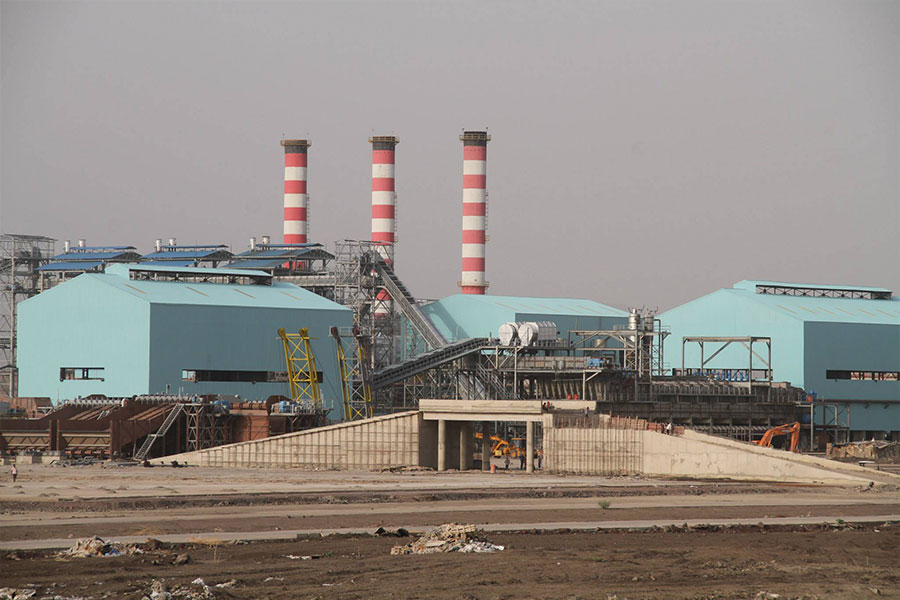
Fortune News | Apr 30,2022

Fortune News | Mar 16,2019
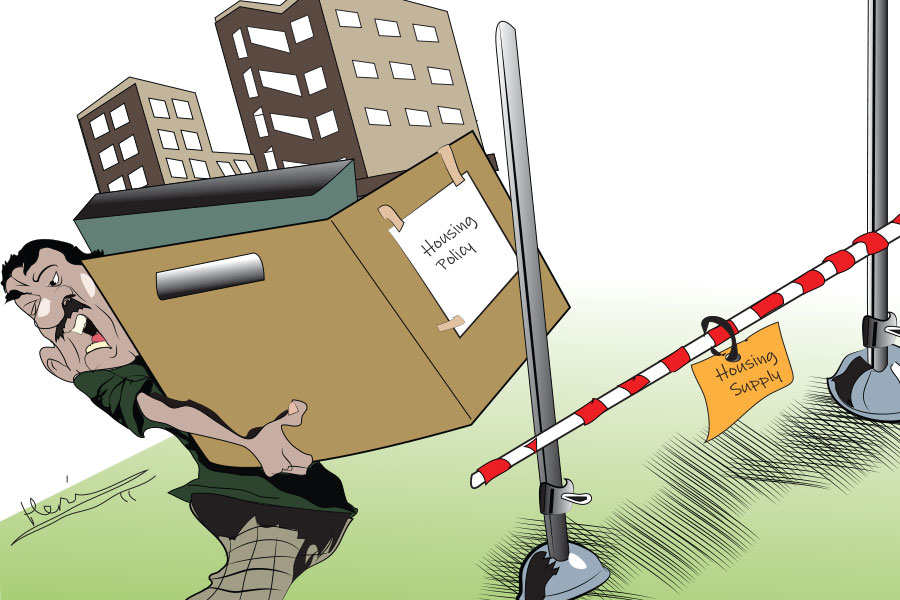
Editorial | May 04,2019

Dec 22 , 2024 . By TIZITA SHEWAFERAW
Charged with transforming colossal state-owned enterprises into modern and competitiv...

Aug 18 , 2024 . By AKSAH ITALO
Although predictable Yonas Zerihun's job in the ride-hailing service is not immune to...

Jul 28 , 2024 . By TIZITA SHEWAFERAW
Unhabitual, perhaps too many, Samuel Gebreyohannes, 38, used to occasionally enjoy a couple of beers at breakfast. However, he recently swit...

Jul 13 , 2024 . By AKSAH ITALO
Investors who rely on tractors, trucks, and field vehicles for commuting, transporting commodities, and f...

Aug 16 , 2025
A decade ago, a case in the United States (US) jolted Wall Street. An ambulance opera...

Aug 9 , 2025
In the 14th Century, the Egyptian scholar Ibn Khaldun drew a neat curve in the sand....
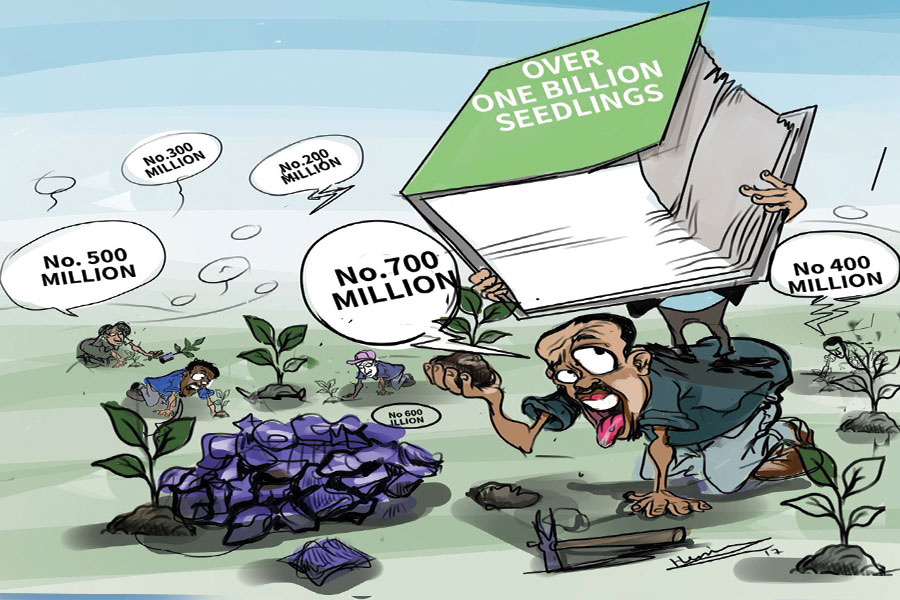
Aug 2 , 2025
At daybreak on Thursday last week, July 31, 2025, hundreds of thousands of Ethiop...

Jul 26 , 2025
Teaching hospitals everywhere juggle three jobs at once: teaching, curing, and discov...